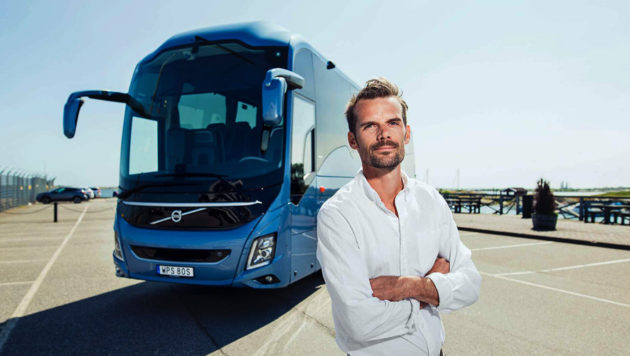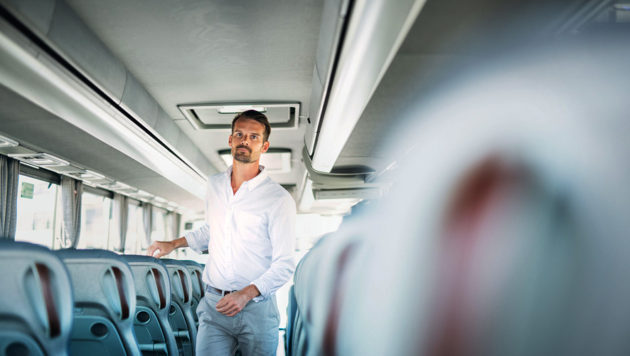Since the start of the pandemic, Volvo Buses has been focussing on safety related to Covid-19. Now it has developed a sanitation program for coach. “We want to support our customers in offering their passengers a safe way to travel by coach in these times, while still guaranteeing a comfortable and relaxing journey”, says Karl Johansson, Business Development Director, Coach Europe at Volvo Buses.

The pandemic has had a huge impact on the travel industry, but now travel is slowly starting to pick up again. How is Volvo Buses working with questions of safety relating to Covid-19?
“Firstly, we have worked with protecting our personnel and ensuring that our local organisations are as informed as possible so that they meet both Volvo’s guidelines and local regulations and requirements. All our facilities the world over are following local guidelines when it comes to personal protection and social distancing. In the same way that we have supported local health care workers with masks and aprons, we are also doing everything we can to support our customers in their operations.”
In what ways is Volvo Buses supporting bus operators in the challenging times?
“We have had a close dialogue with our customers through the whole crisis. We try to see their different needs and support as much as possible. This can be everything from delivery arrangements to different financing options, and whenever possible we have had our service points operating. Our aim is to help our customers in any way we can so that together we can get through the crisis stronger.”
What are the biggest challenges when it comes to Covid-19 and the bus industry?
“For our customers the challenge is to meet the needs of travellers while at the same time, meeting demands for social distancing in order to not contribute to the spread of the virus. This is why it is very important that we as manufacturers work together with operators and different authorities when it comes to recommendations and product solutions.”
What can bus operators do to minimise risks and increase safety for passengers and drivers?
“As a bus operator, we advise you to look at which product accessories and customisations are suitable for your application. For example, it could involve looking at processes for boarding, disembarking or payment, to minimize contact with the driver. You can also ensure there are decontamination solutions in place for your vehicles such as air purifiers, separation glass, hand sanitiser and other disinfecting solutions. It is also important to have clear communication with passengers about the recommendations that apply and what measures need to be taken on board the bus. It not only increases awareness, but also reduces anxiety.”
What should passengers be thinking about when travelling by bus?
“Basically, it is about following the recommendations from local authorities and the coach operator. It is still possible to travel safely by long distance bus, even today.”

Volvo Buses is currently offering a sanitation program, the Clean & Care Program, for coach customers in Europe. What does that mean?
“We want to support our customer in offering their passengers a safe way to travel by coach in these times. Therefore, we created a strategy which includes a sanitation program to increase the safety on board and minimise the risks for both passengers and crew, while still guaranteeing a comfortable and relaxing journey. Clean & Care Program includes a number of measures to minimise the risk of infection, for example general maintenance recommendations, air disinfection equipment, driver separators (partition walls) and hand disinfection dispensers. Of course, it is also possible to retrofit existing Volvo buses with this too.”
Will the pandemic affect how Volvo Buses works with issues of safety going forward?
“Volvo Buses is continuously working to improve safety for passengers, drivers and guides. For example, we introduced first aid kits to our buses many years ago, and ten years ago we started offering defibrillators. Safety in relation to infectious diseases is a relatively new phenomenon that we will continue to address.”